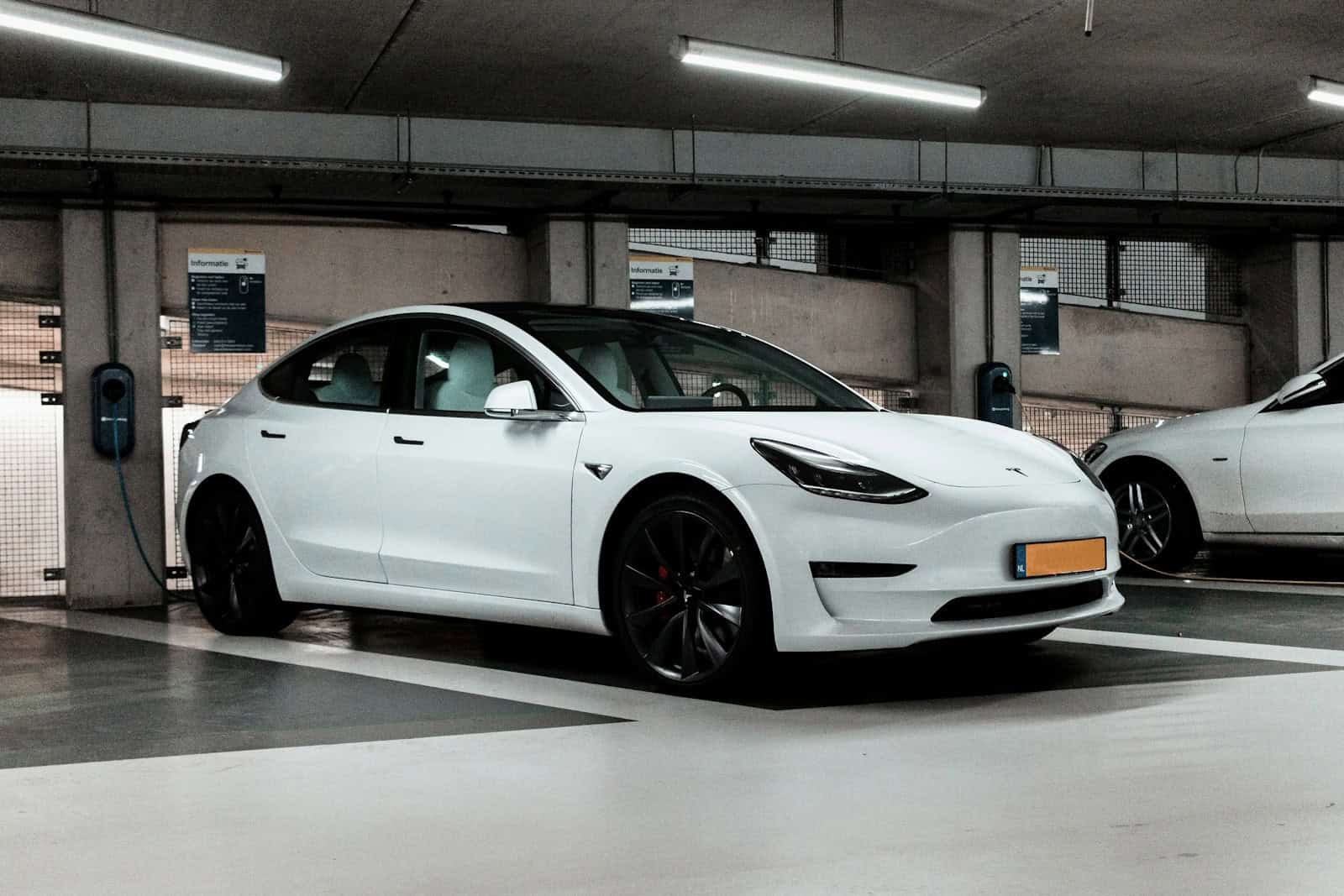Electric vehicles (EVs) have revolutionized the automotive industry. They offer a cleaner, more efficient way to travel. Many drivers wonder about EV maintenance, especially oil changes.
Electric cars do not need oil changes. Unlike traditional vehicles with internal combustion engines, EVs don’t use motor oil. They have electric motors that don’t require lubrication from oil. This means EV owners can skip the regular oil change appointments that gas-powered car owners are used to.
While EVs don’t need oil changes, they still require some maintenance. Tire rotations, brake fluid checks, and cabin air filter replacements are all part of EV upkeep. These tasks are usually less frequent and less costly than the maintenance needed for gas-powered cars. EV owners can enjoy lower maintenance costs and fewer trips to the service center.
Electric Car Maintenance
Electric vehicles (EVs) are becoming increasingly popular. But do they require the same kind of maintenance as gas-powered cars? One common question is about oil changes. The simple answer is no. EVs don’t need oil changes because they don’t have traditional internal combustion engines.
Why No Oil Changes?
Gas cars use oil to lubricate the many moving parts in their engines. EVs, on the other hand, have far fewer moving parts. They use electric motors to power the wheels, and these motors don’t need oil to function.
What Fluids Do EVs Use?
While EVs don’t need oil changes, they do use other fluids that require occasional checks or replacements. These include:
- Coolant: This helps regulate the temperature of the battery and electric motor.
- Brake fluid: This is essential for your braking system to work properly.
- Windshield washer fluid: Just like in a gas car, you’ll need this to keep your windshield clean.
- Transmission fluid: Some EVs use transmission fluid, though it typically lasts much longer than in a gas car.
Regular Maintenance for EVs
Even though EVs don’t need oil changes, they still require regular maintenance. This includes:
- Tire rotations: Just like gas cars, EVs need their tires rotated to ensure even wear.
- Brake inspections: While EVs use regenerative braking, their brake pads still wear down over time.
- Battery checks: The battery is the heart of an EV, so it’s important to have it checked periodically.
- Software updates: EVs often receive software updates that improve performance and add features.
- Cabin air filter replacement: This helps keep the air inside your car clean.
EV vs. Gas Car Maintenance
Here’s a table summarizing the key maintenance differences between EVs and gas cars:
| Maintenance Item | EV | Gas Car |
|---|---|---|
| Oil Change | Not Required | Required |
| Coolant | Required | Required |
| Brake Fluid | Required | Required |
| Transmission Fluid | Sometimes Required | Required |
| Air Filter | Required (Cabin Air Filter) | Required (Engine Air Filter) |
| Spark Plugs | Not Applicable | Required |
Overall, EVs require less maintenance than gas cars. This can lead to significant cost savings over the life of the vehicle.
Key Takeaways
- Electric vehicles don’t require oil changes due to their motor design
- EVs still need some maintenance, like tire rotations and filter replacements
- Maintaining an electric car is generally less frequent and less expensive than a gas-powered vehicle
Understanding Electric Vehicle Maintenance
Electric vehicles (EVs) require different upkeep than gas-powered cars. They need less work overall, but some parts still need care. Let’s look at how to keep EVs running well.
The Electric Motor and Maintenance Needs
EVs use electric motors instead of gas engines. These motors have fewer moving parts. This means they need less care. They don’t need oil changes or tune-ups. But they do need some checks.
Owners should look at motor mounts and connections. These can loosen over time. The motor’s cooling system also needs checks. Some EV motors use a special fluid to stay cool. This fluid lasts a long time but may need topping up.
Comparing EV and ICE Vehicle Maintenance
EVs are easier to maintain than gas cars. They have no spark plugs, fuel filters, or timing belts to replace. This cuts down on work and costs.
Gas cars need oil changes every 3,000 to 7,500 miles. EVs never need oil changes. They also don’t need smog checks or emissions tests.
But EVs do share some upkeep needs with gas cars. Both need tire rotations and brake fluid checks. EVs may need less brake work due to regenerative braking.
Electric Vehicle Fluids and Consumables
EVs use fewer fluids than gas cars. But they still need some. Here’s a list of fluids EVs use:
- Brake fluid
- Coolant for the battery and motor
- Windshield washer fluid
These fluids need checking and topping up. The coolant is key for keeping the battery at the right temp. Some EVs use special coolants that last longer.
EVs also need new wiper blades and cabin air filters. These are easy to replace and help keep the car in good shape.
Brake System in Electric Vehicles
EV brakes work differently from gas car brakes. They use regenerative braking. This slows the car and charges the battery. It means less wear on brake pads.
But EV brakes still need care. Owners should check brake fluid levels. Brake pads and rotors may last longer, but they still wear down. Some EV makers say to use brakes hard now and then. This keeps rust from building up.
Battery Maintenance and Longevity
The battery is the heart of an EV. It needs no direct maintenance from owners. But there are ways to help it last longer:
- Keep the charge between 20% and 80% most of the time
- Avoid very hot or cold temps when parking
- Use fast charging sparingly
EV batteries can last 8 to 10 years or more. Some carmakers offer long warranties on batteries. This covers replacement if the battery loses too much capacity.
Understanding the EV Cooling System
EVs need cooling systems to keep batteries and motors from getting too hot. These systems use coolant, like gas cars. But they’re often more complex.
The cooling system needs regular checks. Low coolant can lead to overheating. This can harm the battery or motor. Some EVs have air cooling for batteries. These need less maintenance but may not work as well in very hot weather.
Tire Maintenance for Electric Cars
Tires on EVs wear differently than on gas cars. EVs are often heavier due to batteries. They also have high torque, which can wear tires faster.
EV owners should:
- Rotate tires regularly
- Check tire pressure often
- Look for uneven wear
Some EVs use special low-rolling-resistance tires. These can boost range but may wear out faster. Proper tire care helps improve range and safety.
Electric Vehicles Maintenance Intervals
EVs need less frequent service than gas cars. But they still need regular checks. Here’s a basic schedule:
- Every month: Check tire pressure
- Every 7,500 miles: Rotate tires, check brakes
- Every year: Inspect battery cooling system
- Every 2 years: Replace brake fluid
- Every 3-4 years: Replace cabin air filter
Always check the owner’s manual for specific needs. Some EVs have built-in alerts for service. These can help owners keep track of what needs doing and when.
Frequently Asked Questions
Electric vehicles differ significantly from traditional combustion engine cars in terms of maintenance. This impacts oil changes, routine upkeep, and overall vehicle care.
Do electric vehicles require oil changes like combustion engine vehicles?
Electric cars don’t need oil changes. They use electric motors instead of gas engines. These motors have fewer moving parts and don’t need oil for lubrication.
What type of maintenance do electric cars typically need?
Electric cars need regular tire rotations and brake checks. They also require coolant system inspections. Battery health checks are important too. These tasks are usually less frequent than gas car maintenance.
Are there any fluid replacements necessary for electric vehicle operation?
Electric cars use fewer fluids than gas cars. They still need brake fluid and coolant changes. Windshield washer fluid is also needed. Some models may require transmission fluid for their gearboxes.
Do hybrid vehicles also avoid the need for oil changes?
Hybrid cars still need oil changes. They have both electric motors and gas engines. The gas engine requires regular oil changes to run smoothly. Check the owner’s manual for the right oil change schedule.
Does the absence of a traditional engine in electric cars impact their maintenance schedules?
Electric cars have simpler maintenance schedules. They don’t need spark plug replacements or timing belt changes. Battery checks replace many traditional engine maintenance tasks. This often means less frequent service visits.
Can electric vehicle components, such as batteries, affect the air quality similar to oil changes in internal combustion engines?
Electric car batteries don’t affect air quality like oil changes do. They don’t produce emissions during use. Battery recycling is important for environmental safety. Proper handling of old batteries prevents harmful effects on air and soil.







